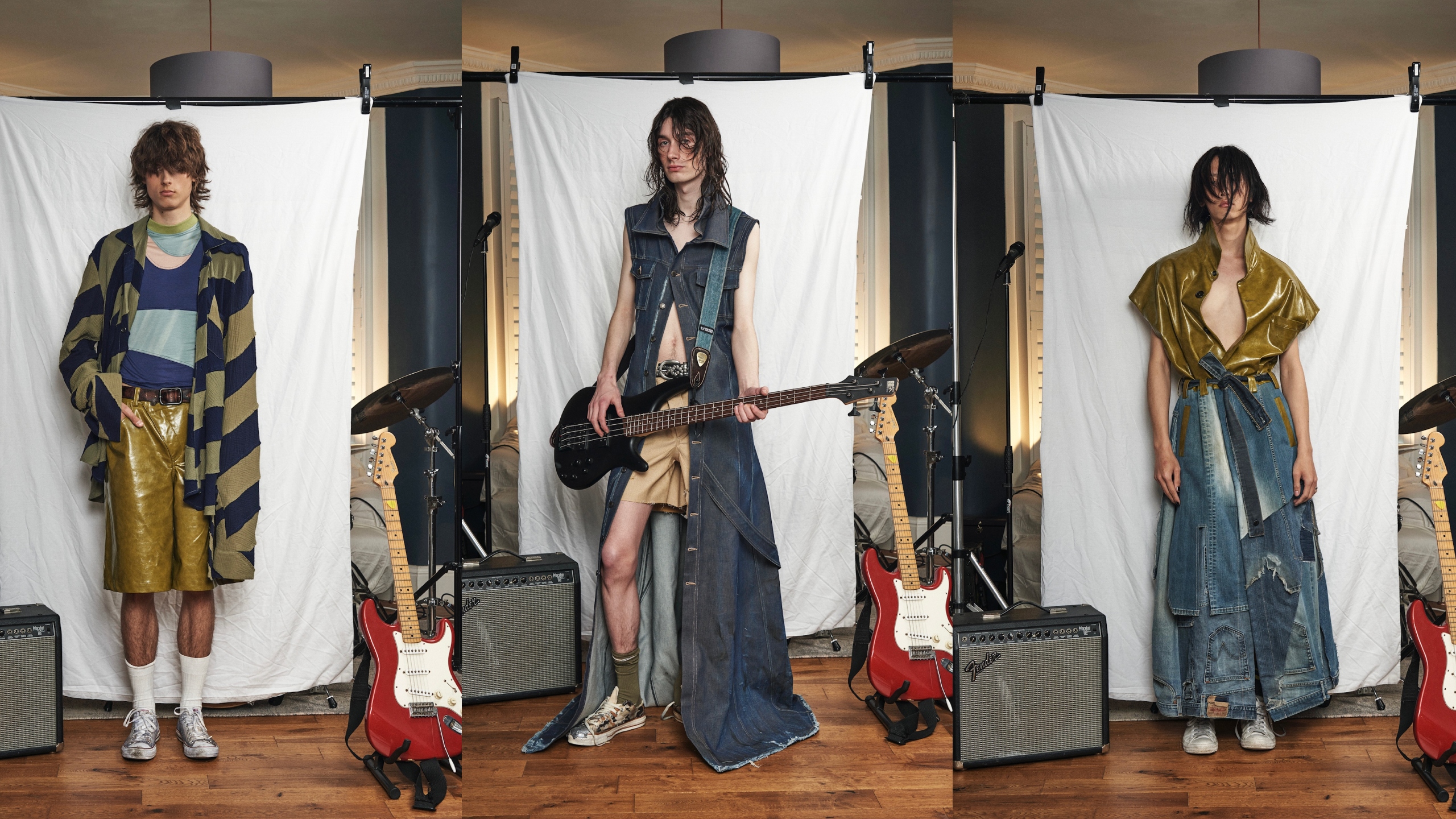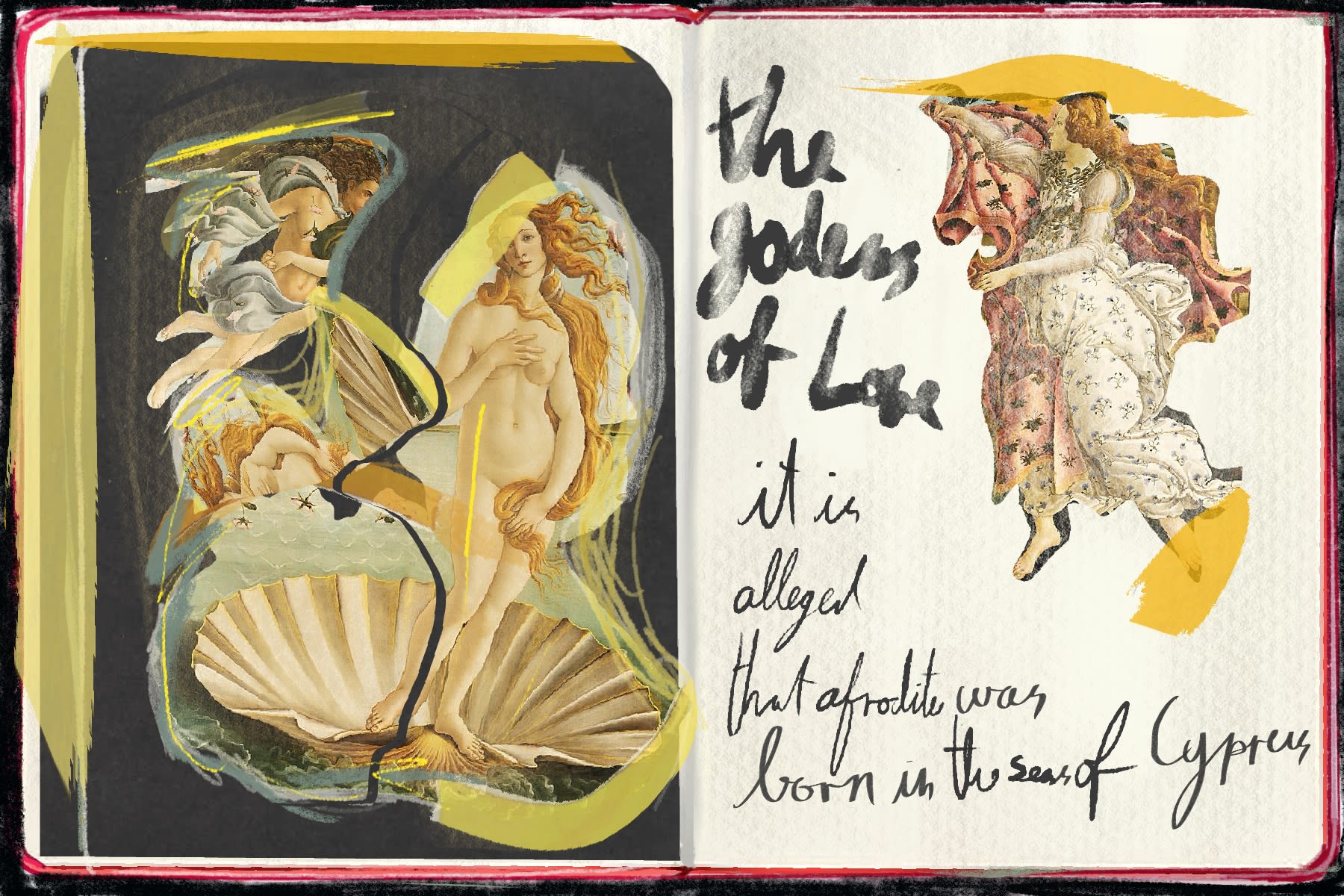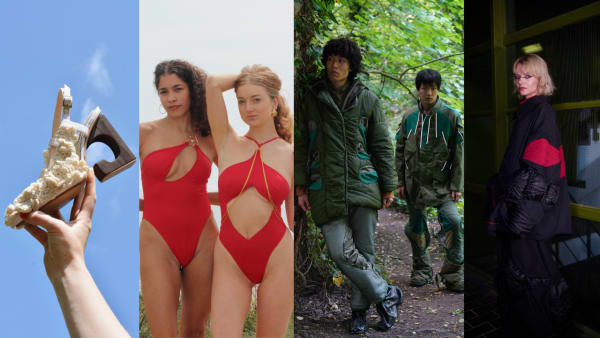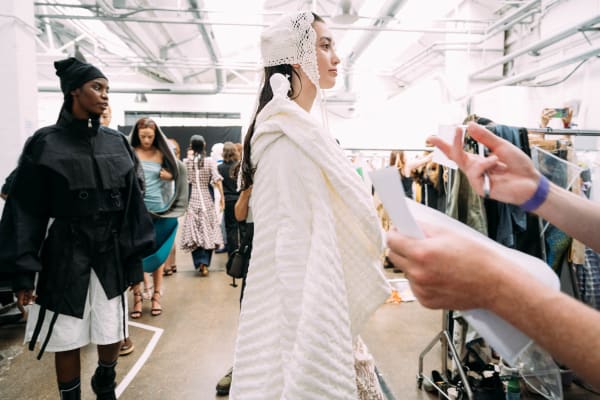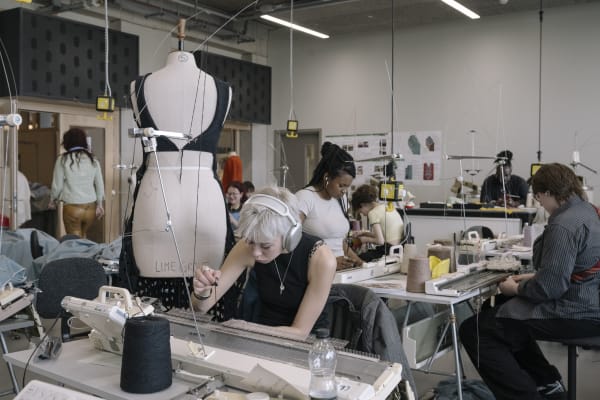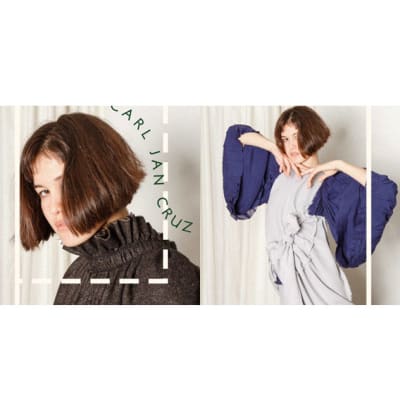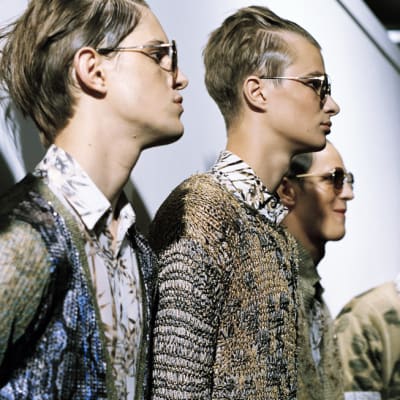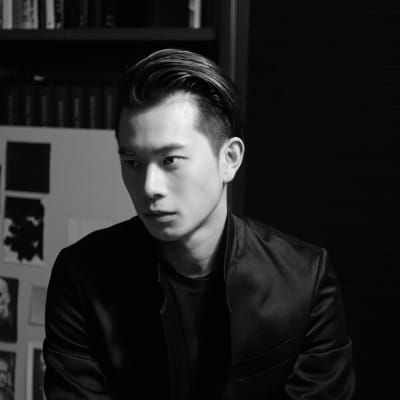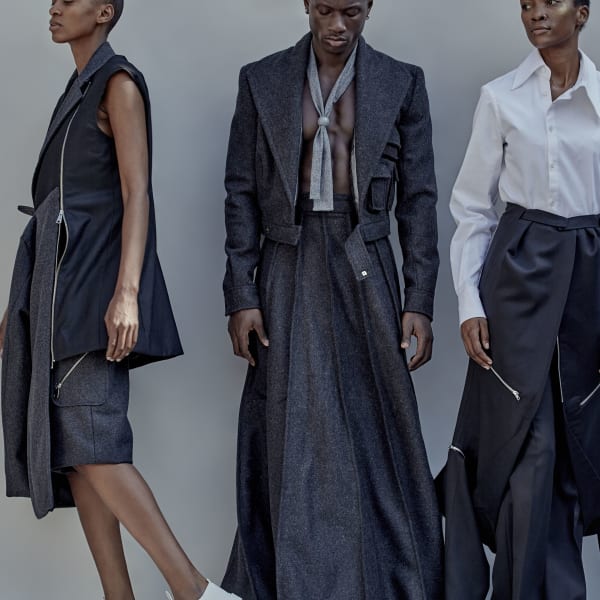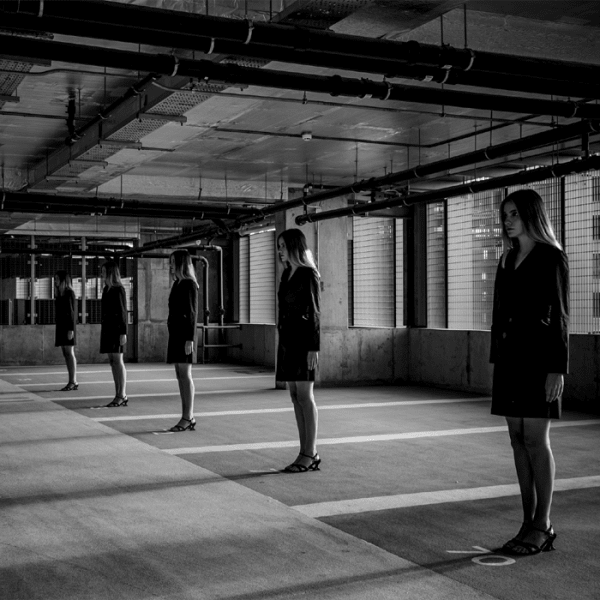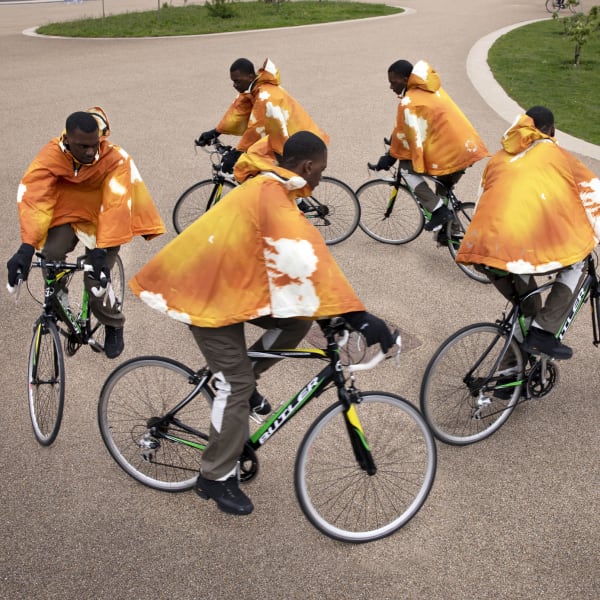Course units
Year one
Introduction to Menswear (20 credits)
This unit introduces you to your course, its subject area, and how to study effectively at undergraduate level. It will orientate you to the practices and knowledge-base needed to understand your discipline and help you to develop your skills for independent and collaborative learning, reflection and your own self development. Students come from diverse educational backgrounds, and this unit will help you reflect on your own and how it influences your approach to the course.
Design and Realisation (40 credits)
Design and Realisation introduces key research approaches and explores their application within design. Focusing on the importance of research and creative concepts as the basis for design development, you'll be encouraged to develop ideas that relate to and expand upon your visual references and research sources to inform final outcomes. You’ll record your work using varied, engaging methods and will be introduced to practical skills through the demonstration of pattern-cutting and garment construction, culminating in a completed garment.
Fashion Cultures and Histories (20 credits)
Fashion Cultures and Histories takes a philosophical and theoretical approach to the study of fashion and its role in representing and communicating identity. The unit assembles key theorisations and ways of thinking about fashion across its cultural, historical, social and political contexts. It will engage you in debate and analysis of fashion as a key marker of social and cultural change and a means of understanding the relationship between individuals and communities.
Form and Structure (40 credits)
In this unit, you’ll develop your understanding of the construction and finishing principles involved in contemporary tailoring. There will be an emphasis on creative shape development and innovative cutting techniques with detailed 3D experimentation. You’ll explore sustainable fabric sourcing to support your design development and enhance portfolio skills to clearly present your ideas, process, and outcomes.
Year two
Critical Issues in Fashion Research (20 credits)
Expand your critical understanding of fashion in a global context and examine emerging debates in fashion research. You’ll engage in collaborative research around current and emerging cultural issues and be guided through approaches to researching and writing about fashion across its social, historical, political and cultural contexts, building on the first-year unit Fashion Cultures and Histories. During this unit, you’ll develop your own independent research path and interests.
Range Development (20 credits)
This unit will introduce you to the importance of range development through design for a client – either simulated or actual. You will be required to analyse the client requirements and refine your visual communication skills.
Work Experience (40 credits)
The Work Experience unit offers opportunity to further develop your skills and apply them in a professional environment, enhancing your understanding of the industry and potential career progression. You’ll experience real industry challenges and working practices, and observe how a professional team responds to different situations. You’ll be expected to take an analytical and reflective approach to the work experience and will produce written and visual evidence of your knowledge, based on a minimum 10-week period in industry.
Collaborative Project (40 credits)
This Collaborative Project emphasises teamwork and will offer you the opportunity to work as part of a design team. Teamwork, communication, and presenting combined design concepts are key skills that prepare you for the creative industries. You’ll build on your knowledge of range development to create a coherent collection for a real or simulated client. Through developing an understanding of the client and their brand ethos, you’ll undertake critical analysis of the information gathered to propose design solutions.
Optional Diploma Year
CCI Creative Computing
Between years 2 and 3, you can undertake the year-long Diploma in Creative Computing. This will develop your skills in creative computing alongside your degree. After successfully completing the diploma and your undergraduate degree, you’ll graduate with an enhanced degree: BA (Hons) Fashion Design Technology: Menswear (with Creative Computing).
CCI Apple Diploma
Between years 2 and 3, you can undertake the year-long Diploma in Apple Development. This will give you an opportunity to become an accredited apple developer alongside your degree. After successfully completing the diploma and your undergraduate degree, you’ll graduate with an enhanced degree: BA (Hons) Fashion Design Technology: Menswear (with Apple Development).
Final year
Contextualising Practice (20 credits)
Through a research-led, extended essay, you’ll build on your historical and theoretical understanding of fashion, addressing critical debates and concerns raised through your course. After identifying a topic relating to your field of practice, you’ll complete an independent research project, underpinned with cultural and critical theory.
Pre-Collection (40 credits)
To prepare for your Final Collection, you’ll create a self-directed project that demonstrates design and realisation through research and innovation. You’ll define your market, customer, and brand ethos, while exploring ethical and socially responsible practices. Prototype testing will be evidenced through 2D and 3D investigation and sampling, within both your design and technical portfolios. This project focuses on showcasing creative experimentation while solving practical problems through fabric and trim sourcing.
Final Collection (60 credits)
Through your Final Major Project, you’ll further demonstrate your innovative approach and deeper engagement, analysis and conclusions drawn from the Pre-Collection unit. You’ll refine and execute your design, design development and realisations established through a process of design synthesis. Through practical application, you’ll demonstrate your rigorous analysis in the exploration and development of your design ideas. It evidences your ability to construct, direct and organise an overall professional outcome. Your Final Collection serves as a reflection of your skills and a step toward establishing a potential career path.
